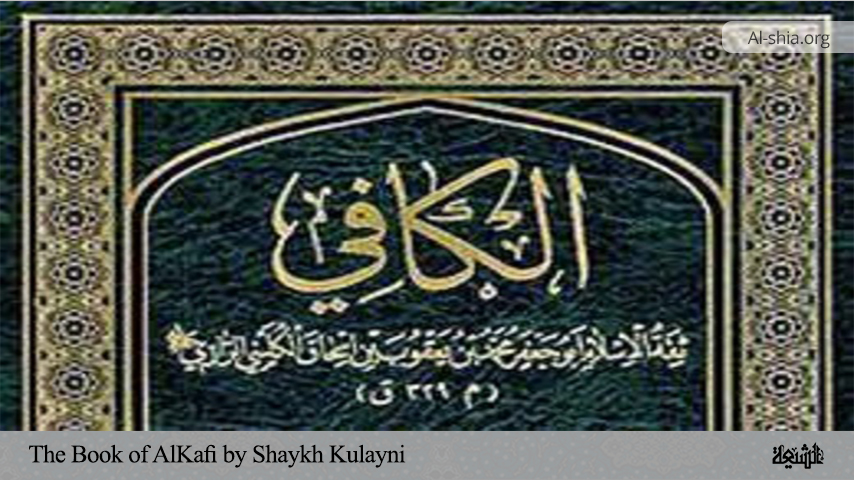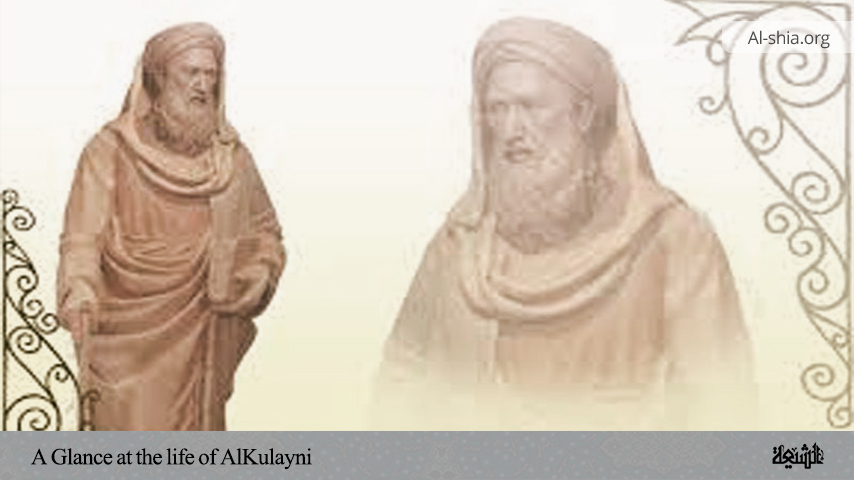Prophethood and Imamate are divinely-appointed offices, which aim is to guide the people to the right path. The Prophets and Imams are divinely appointed individuals that are charged with the responsibility of guiding the people unto Allah. Thus, one of the required attributes of both the Prophets and Imams is infallibility (i.e., Ismat).
Meaning of Ismat
The term ‘Ismat’ literally means ‘Protection’. In Shia terminology, it means ‘A special Divine Grace (Lutf) of Allah to a person which enables the said person to abstain from every sin by his own free will.’ Such a person is called “Infallible” or ‘Ma’sum’. This Lutf (Divine Grace) does not make the Infallible person incapable of committing sin, but, in fact, the infallible person sees and understands the consequence of sin and he, therefore, refrains from sins and mistakes by his own power and will.
Here is an example which will make its meaning clear: It is within the power of any person to go naked on the streets. (And, for that matter, in many western countries, women practice the ‘art’ of discarding all their clothes in packed halls). But have you ever thought of doing so? No. Why? Because it is far below your dignity to behave like it. Mind it, we do not say that it is ‘impossible’ for you to do so. Surely, it is within your power, but you will never even imagine of doing so. Why? Because you think that such foolishness would tarnish your honour in your society.
Similarly, though an infallible person (Prophet or Imam) has the ability to commit sin, he never even imagines of doing so, because it is far below his dignity to stoop to the sins and mistakes.
According to the Shia beliefs, all Prophets of Allah and Imams were Infallible and sinless. Of course, they could commit but commit no sin –a capital sin nor a minor one; intentionally nor inadvertently; and this applies from the beginning of their lives up to their last breath.
So far as the Sunnis are concerned, they admit that the Prophets could neither tell a lie intentionally nor by mistake after prophethood, and they could not be Kafir after the declaration of the prophethood. As for other sins, their opinion is widely divided. Most of them say that the Prophets could not commit other sins intentionally.
About committing capital sins unintentionally, the majority says that it was possible, and a minority holds that it was not possible for minor sins, they say that it was possible for the Prophets to commit minor sins, though they could not commit such minor sins which would have degraded them in the people’s eyes, like stealing a loaf of bread. Thus, it is clear that the Sunnis have no clear idea about the Ismat (Infallibility) of the Prophets.
Why Ismat (Infallibility)?
i. Logical Reason
What are our reasons to believe that all prophets were Infallible (Sinless)? The reason is very simple: Almighty Allah sent the Prophets to lead their people onto the right path, but, this goal could not be achieved if the Prophets had not been sinless.
Suppose there is a man who, just like ordinary people, commits sins or wrongs. And suppose such a man claims that he has been sent by Almighty Allah to lead his people to the right path and provide with his life a model of all that is good and virtuous in human nature.
How can the people be sure that he is saying the truth, the whole truth and nothing but the truth? He cannot command from his people the unreserved respect and undo table obedience which is his due. Therefore, to carry on the work of Almighty Allah, the prophets must have been sinless and immune from committing mistakes.
ii. Proof From the Qur’an
This logical reasoning is supported by the Holy Qur’an also. Look, for example, to the following verses:
First Verse: Almighty Allah says: “We did not send any apostle but to be obeyed in accordance with the Will of Almighty Allah.” (4:64).
The Prophets and the Apostles were to be obeyed and followed, not that the followers were expected to check every action of the prophet to decide what was to be obeyed and what not to be obeyed. How could this be true unless the prophets and apostles are believed to be free from errors, sins and mistakes?
Second Verse: Almighty Allah commands us to obey the Prophet: “O you who have faith! Obey Allah and obey the Apostle and those vested with authority among you. And if you dispute concerning anything, refer it to Allah and the Apostle, if you have faith in Allah and the Last Day. That is better and more favourable in the outcome. (4:59).
Third Verse: Again He says: “Whoever obeys Allah and the Apostle—they are with those whom Allah has blessed, including the prophets and the truthful, the martyrs and the righteous, and excellent companions are they” (4:69).
Fourth Verse: He says: “Take whatever the Apostle gives you, and refrain from whatever he forbids you, and be wary of Allah. Indeed Allah is severe in retribution”. (59:7)
Fifth Verse: In the same Surah it is asserted: “He Whoever obeys the Apostle certainly obeys Allah.” (4:80)
In all these verses of the Qur’an, as well as in numerous other verses, the obedience of Almighty Allah is made synonymous with the obedience of the prophet. Such assertion would have been impossible if the prophets were not infallible.
Sixth Verse: Add this verse to the above verses: “Do not obey those who do wrong.” (25:52)
Now the picture is complete. The Prophets were to be obeyed but the wrongdoers were not to be obeyed, the only conclusion is that the Prophets were not wrongdoers.
Seventh Verse: Now comes the supplication of Prophet Abraham (PBUH) and its answer from Almighty Allah: “When his Lord tested Abraham with certain words and he fulfilled them, He said, ‘I am making you the Imam of mankind.’ Said he, ‘And from among my descendants?’ He said, ‘My pledge does not extend to the unjust.” (2:124)
This verse clearly shows that the Divine Promise of Almighty Allah to appoint Imams (This word means here religious leader, including both the prophet and Imam of Muslim terminology) will not reach the sinners.
This much will be sufficient to show that our beliefs (Shia Muslims) are based on a clear understanding of the Qur’an, concerning the authority and duty of the Prophet towards Almighty Allah and towards his people.
Some verses of the Qur’an
It should be mentioned here that there are some verses in the Qur’an which give, to some minds, an impression that Prophet Adam (PBUH) and some other Prophets committed some sins. The Qur’an itself declares that some of its verses are clear ones which are the basis of the Book and others are allegorical. Then it goes on to say that the true interpretation of allegorical Verses is known only to Allah and to those who are firmly grounded in knowledge. (But no one knows its interpretation except Allah and those firmly grounded in knowledge). (Qur’an 3:7)
Therefore, it is necessary, first of all, to decide which verse has a clear meaning, and which one is allegorical, whose meaning must be decided upon in the light of the clear verses under the guidance of the Prophet or Imams (who were firmly grounded in knowledge). Then, and then only, can we save our beliefs from conflicts? To sum it up:
(1) Reason says that the Prophets should be sinless and infallible;
(2) Many verses of the Qur’an support this view, as mentioned earlier;
(3) But still some other verses of the Qur’an appear to attribute sins and wrongs to some prophets.
What is a Muslim supposed to do? The old-established rule and practice demand that we must accept those verses, which are supported by reason, as the clear ones. And as regards other verses (which show that they committed sins) we should seek what is their true and valid interpretation, within the framework of the Arabic language and grammar, as taught by the Prophet and Imams (a.s).
To be continued!






